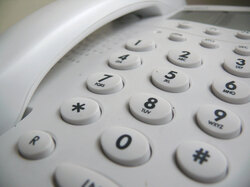Real (Old, Traditional) Landline Versus New 'Landline' (Smart, Virtual, Not Really Landline)
The UK, where we live quite happily, is trying to deprecate ("phase out") landlines while charging the same (or higher) prices for calls, even if they're just VOIP, i.e. they cost nothing to the carrier at least at the sending/receiving end (sometimes both). Other countries across Europe are doing the same. This is reminiscent of the SMS swindle; it never cost carriers anything to relay short messages, which were part of the polling message (communicating with the tower) and thus no additional overhead.
These companies would also charge us for oxygen if they could. Heck, one of them is called "O2" (O2).
Landlines are wired to (typically) copper sockets/cables (POTS, Plain Old Telephone Service) and are generally reliable.
In a couple of weeks it'll be exactly one year since they financially manipulated us into moving to "new" landlines (it would cost more to keep them).
To summarise the key downside (so far), with the 'new' so-called 'landlines' we have a new issue: if there's no electricity, there's no 'landline'. Worse yet, if there's no Internet connection, there's no 'landline' either. So how is one supposed to phone emergency services, including those designated to deal with outage-related emergencies? Like something on fire, smoke in the house, Internet down etc.
One can safely assume those considerations were not part of the "security" design. Those aspects were just conveniently overlooked (ignored).
My wife says that the "old one is better" because now, as she puts it, "if you lose the Internet, you lose the landline too." █

